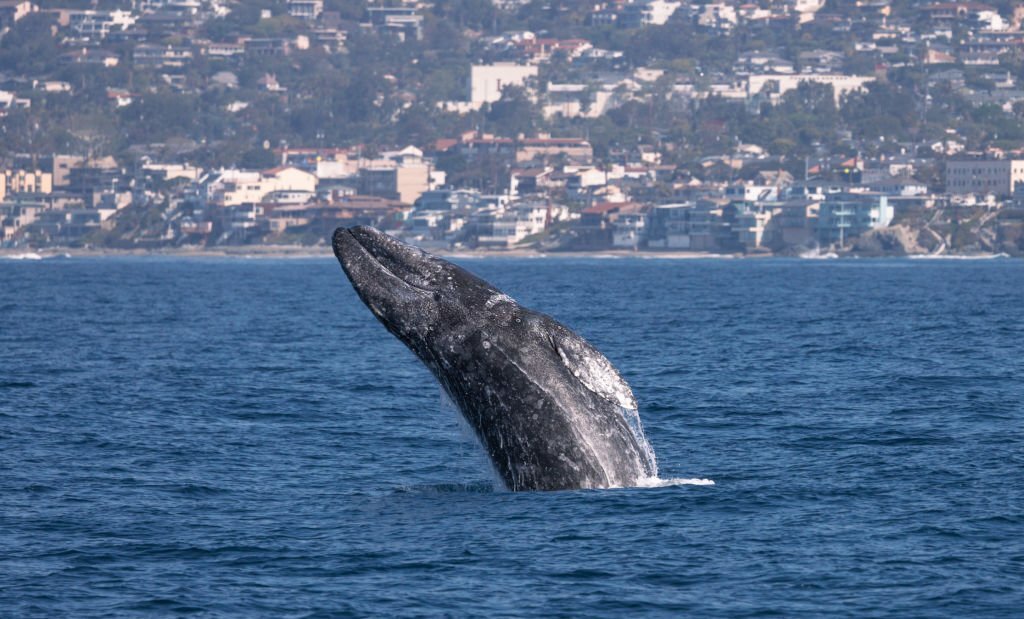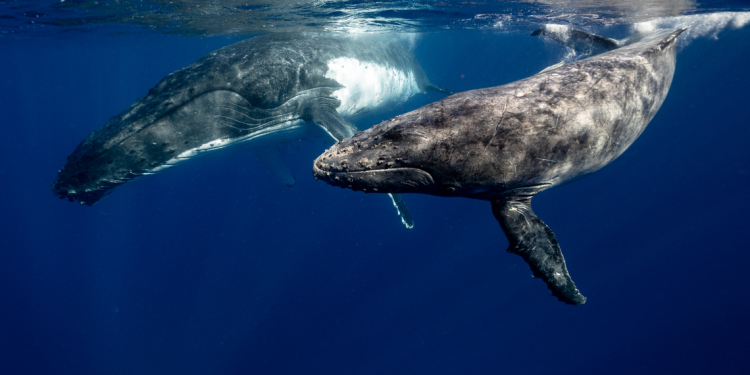Have you ever seen a whale in person? Do you not get fascinated by its humungous size? Do you know that despite being one of the biggest creatures to exist in the world, they aren’t harmful to human beings? Well, today we will talk about one such whale that got famous by setting a world record among its species. A whale traveled halfway around world sets a new record was found to be from among the endangered type of gray whales, that traveled all the way from the North Pacific to the coast of Namibia journeying a distance of about 20,000 miles across the world.
The whale
Whales are dispersed throughout the entire world’s seas and oceans starting from the equator to the poles. Just like any other mammal, A whale traveled halfway around world sets a new record they breathe in air, give birth and feed them their milk, and have hair.
Even though a whale lives in water, it must surface the water to evacuate its entire lungs (in a process called a blow) and take in fresh oxygen before diving back into the water.
Different whales have different living habitats and characteristics for their survival. A few of the many types of whales include:
- Sperm whale
- Orca whale
- Blue whale
- Bowhead whale
- Gray whale
- Fin whale
- Beluga whale
The whale to set the world record was a type of gray whale.
Gray whale

Also known as the devil fish, gray whales get aggressive when harpooned. They are about 50 feet long and weigh approximately 90,000 pounds. The female whale is larger than the male, with small eyes located just above the corner of their mouths. At birth, the gray whales are black in color which becomes a lighter gray with age.
Migration of a gray whale
Known as one of the greatest migrators of the animal kingdom, gray whales travel in groups called pods. They travel about 14,000 miles from cold waters to warmer ones usually found in Korea and Mexico.
Types of Gray whales
There are two types of gray whales, i.e., the eastern gray whale and the western gray whale. Both these types are mostly found in the North Polar regions. While the eastern gray whale has a steady population of about 20,500, the western gray whale is said to be endangered with a population of only 200 around the whole world. Getting a bit more insightful on the western gray whale, they aren’t said to travel more than 6,000 miles which was another thing that surprised marine scientists when they discovered the endangered specie along the coast of Namibia.
The great migration
When spotted, the eyewitness scientists collected the DNA samples of the whale and tested them in the laboratory. Surprisingly, the DNA did not match the one they had in their lab, which was samples of the eastern gray whales. This confirmed that the migrated gray whale was from the endangered species of the western gray whale.
Scientists from Durham University, UK, took it upon themselves to confirm this research. It took them a few years but they confirmed this migration to be the greatest in mammal history, after humans.
Rus Hoelzel, a scientist working on this research said, “This is the record really for an in-water migration. Suppose you’re assuming that this individual started its life in the northwest Pacific and it found its way to Namibia. That’s as far as any vertebrate has ever gone in the water, as far as we know.”
When Elwen, a co-author in the study and zoologist heard about the discovery of the grey whale in 2013, he said,
“I was a bit dismissive. It’s like someone saying they saw a polar bear in Paris—technically it could get there, but it just doesn’t seem very realistic.”
Conclusion
After humans, whales are considered the most mysterious mammals that travel to undefined places encountering different sounds on their way that only they can understand. One of these whales – the gray whale – set a world record by traveling halfway across the globe.












